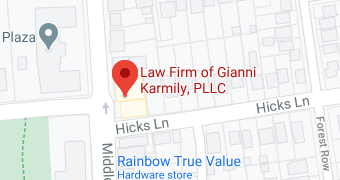If you act as an accomplice to a crime on Long Island or anywhere in New York, you can be charged with that crime even if you did not directly commit the crime yourself, and you will require the advice and services of a Nassau County criminal defense attorney.
Whether the crime was a petty theft or a massive drug trafficking operation, the law can hold you accountable for something that you did not do yourself. Accomplices to crimes in New York face exactly the same charges as the perpetrators of those crimes.
What penalties can you face if you are convicted as an accomplice to a crime? What constitutes criminal “complicity” under New York law? What do prosecutors have to prove to win a conviction for criminal complicity, and how will a good defense attorney fight on your behalf?
If you’ll continue reading this brief discussion of the criminal complicity laws in New York, you will learn the answers to these questions, and you will also learn more about your rights if you are charged in this state as an accomplice to a crime.
What Constitutes Criminal Complicity?
New York’s criminal complicity laws provide that if one person perpetrates a crime, someone else is criminally accountable for that same crime if the second person, “solicits, requests, commands, importunes, or intentionally aids” the first person in the commission of the crime.
This means that an accomplice may be charged for the same crime as the person who actually perpetrates the crime. If you are an accomplice to burglary, for instance, you may be charged with burglary, but if you are an accomplice to a murder, you could be charged with murder.
This also means that someone accused of being an accomplice will need the same aggressive defense representation as the person who is charged with actually committing the crime.
Knowing a Criminal Doesn’t Make You a Criminal
Merely knowing the perpetrator of a crime or being in the vicinity of a crime does not constitute criminal complicity. If you are shopping with a friend who shoplifts an item from a retailer, and if you did not know that the item was shoplifted, you are not an accomplice. So you won’t be prosecuted for shoplifting in New York.
Moreover, in New York, even knowing that a crime is taking place does not necessarily make you an accomplice. If you had no intention to commit a crime, you cannot be legally considered an accomplice.
What Is Required to Establish Complicity?
However, if you intentionally create a distraction or if you act as a lookout for a shoplifter, for example, you may be considered an accomplice and charged with shoplifting. Other instances of criminal complicity could include but are not limited to:
- financing a crime
- providing supplies for the commission of a crime
- providing information for the commission of a crime
- helping to hide or destroy evidence of a crime
The courts in New York have held that a criminal accomplice is someone who commits an intentional act to assist the commission of a crime, such as driving a “getaway” car, providing weapons or burglary tools, or providing “inside” information needed to commit the crime.
Did You Have Criminal Intent?
New York’s courts have also determined that you cannot be convicted as an accomplice to a crime unless you were in the state of mind required to commit the crime – that is, unless you had “mental culpability” or criminal intent.
Thus, complicity may apply whenever someone who is acting with the same culpable mental state as the perpetrator of a crime in fact assists the perpetrator of the crime. Don’t think that you will “get off easy” as an accomplice because you are committing a “lesser” crime. You’re not.
Accomplices and perpetrators face the same criminal penalties in New York, so if you are charged as an accomplice to a crime, you must be represented by the right Long Island criminal defense lawyer.
How Does Complicity Differ From Conspiracy?
Conspiracy may apply if you have merely agreed to be an accomplice to a crime. Conspiracy is the agreement between two or more people to commit a crime in the future. To be convicted of a conspiracy charge, the actual crime itself does not have to take place.
Instead, criminal intent is all that is required. If you and an associate are arrested while walking into a bank with firearms, for example, you may be charged with conspiracy to commit bank robbery (along with firearms charges), although the bank robbery did not in fact take place.
Do Not Risk Your Freedom
If you are charged as an accomplice to any crime on Long Island or in New York City, do not risk your freedom on an untested attorney. You will need help from a defense lawyer who has substantial experience representing those who are charged as criminal accomplices.
Police and prosecutors can’t read someone’s mind, so when the central issue in a criminal complicity case is whether the defendant had criminal intent, selecting a good criminal defense attorney can make the difference.
The right Nassau County criminal defense attorney will protect your rights throughout the legal process and develop an effective defense strategy on your behalf. Your attorney will investigate the crime and the details of the charge, review the evidence, and question the witnesses.
If you are placed in custody and charged with a crime, contact a defense attorney as quickly as you can. Be cooperative and do not resist the police in any way, but insist on your rights. Explain to the police that you prefer not to answer any questions and that you would like to contact your attorney.
What Steps Will Your Defense Lawyer Take?
In a complicity case, a defense lawyer’s usual first legal step is seeking to have the case dismissed, but if that is not possible, you have the right to a trial by jury. At a trial, your defense lawyer will explain to the jurors what happened and why they should find you not guilty.
However, if the state’s complicity case against you is conclusive and the evidence of your guilt is overwhelming, your Long Island criminal defense lawyer may instead negotiate an acceptable plea deal on your behalf, and you’ll plead guilty to a lesser crime in return for a lesser sentence.
If you are charged with any crime on Long Island or in New York City, your freedom and your future will hang in the balance. Your first priority will be retaining a good defense attorney – at once – and consulting with that attorney as soon as possible.













